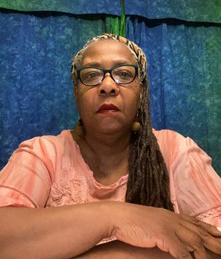News
A Conversation on Race and the Child Welfare System in the United States

By Regina Dyton
Since the nation witnessed the murder of George Floyd at the hands of members of law enforcement, it has been hard to contain the sorrow and anger. As he called out for his deceased mother, he spoke to every mother across this nation who has struggled to keep her child safe. As a Black mother of an incarcerated son, I am tired and scared to stand witness to yet another generation of children and grandchildren who must learn to navigate the racial prejudices that infuse our systems.
And, while it is clear that this issue extends far beyond law enforcement, any dialogue about how we move forward must acknowledge the fact that systemic racism across all of our systems is interconnected and interwoven.
What child of an African American mother hasn’t heard the phrase: “I’m beating you now so the cops don’t kill you later.” Too many Black and brown parents believe that teaching our children compliance without question can save our sons from being taken from us by police through imprisonment, permanent injury, disability or outright murder, like the knee to the neck that took George Floyd. “That boy better learn to listen!”
It is with anguish and desperation that we seek to impart submission into our children early on. In doing so, we prepare our children for servitude while others prepare their children for leadership.
A 2015 Pew Research survey found that Black parents are more than twice as likely as white and Latino parents to use corporal punishment on a regular basis. Many believe it is a tradition that has its roots in slavery, with enslaved Black mothers and fathers preferring to beat their child rather than allow the slave owner and his overseers to beat them. I find it appalling, but understandable on some level, that descendants of one of the cruelest examples of slavery in world history would pass the beatings on.
This is clearly also one of the root causes for the disparities we see in the child welfare system. There is no question that racial bias exists in Child Protection Services. A parent of color is more likely to be reported for abuse or neglect, that report is more likely to be substantiated, and that child more likely to enter the foster care system.
In fact, according to The Imprint’s Foster Care Capacity website, while African Americans make up 9.8% of the population in Connecticut, they represent 22.5% of the population of youth in foster care.
Once in that system, that child is more likely to be exposed to situations and environments leading him to trouble with the juvenile justice system. The juvenile justice system is too often a road to the adult criminal justice system. Every step on that road is life threatening.
Challenging the negative definitions and images we have been given of ourselves and working to heal internalized racism is one critical step to reducing the number of children of color fed into child protective services.
That is one of the key goals of the St Francis Hospital and Medical Center/Trinity Health of New England’s participation in the Child Safety Forward initiative. Funded through a grant from the U.S. Department of Justice, Child Safety Forward is a demonstration initiative across five sites to develop multidisciplinary strategies and responses to address fatalities or near-death injuries as a result of child abuse and neglect. Our site is primarily focused across the Hartford, Connecticut, region.
The challenges we face include socioeconomic conditions across our region that include poverty, racially segregated communities, and inadequacies in data collection and reporting that have led to a reactionary rather than proactive approaches to child safety. Ultimately, we hope to utilize a population health approach to reduce the rate of repeated child injuries and fatalities in Hartford, which is currently two times the national average.
The effort will include a collaborative approach involving grassroots neighborhood organizations, caregivers, health professionals, researchers, foundations, state agencies and others to eliminate health disparities in communities served by St. Francis Hospital and Medical Center. And, it will include a conversation across communities about the systemic racism that impacts families of color and how we can engage all voices and all lived experiences to bridge the gaps and disparities that have resulted.
These issues may not be solved overnight. But I am encouraged that the dialogue is real, that the voices speaking out are loud are multi-cultural and united in the call for change.
For every Black mother of a newborn who, like me, whispered into my baby’s ear, “I will not lose you to the police, I will not lose you to prison, I will not lose you to the law enforcement system,” know you are heard.
Child abuse and neglect is not inevitable. It is our responsibility as a society to tackle these hard issues and ensure that all children have the opportunity to grow up in an America that represents equity, inclusion, diversity and most of all, hope.
Regina S. Dyton is director of community health and well-being for Trinity Health of New England and project director of the Child Safety Forward Initiative in Connecticut. This article originally appeared in The Imprint on Dec. 6, 2020.



